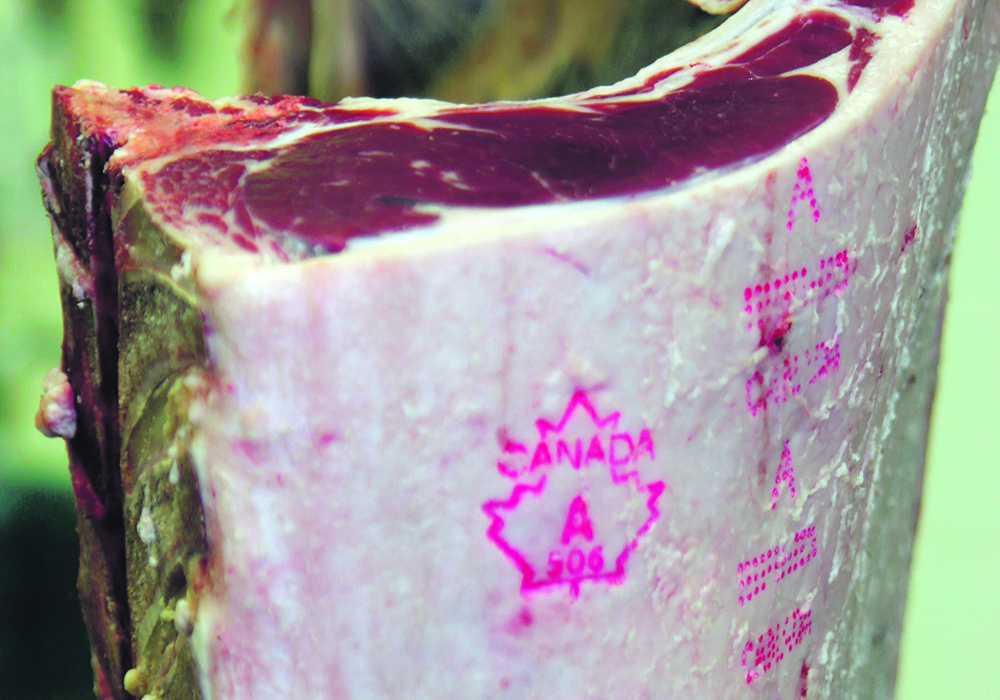Last weekend, Canada and other nations welcomed Britain into the Comprehensive and Progressive Trans Pacific Partnership.
At a signing ceremony in New Zealand, Britain became the 12th member of the trade pact, joining Canada, Australia, Brunei, Chile, Japan, Malaysia, Mexico, New Zealand, Peru, Singapore and Vietnam.
International trade minister Mary Ng supported the United Kingdom joining the CPTPP, noting in a news release that Canada and Britain are committed to “open, predictable and inclusive” trade.
The federal government may want Britain in the CPTPP, but the Canadian Pork Council, the Canadian Cattle Association and the Canadian Meat Council do not.
Read Also

Volatile temperatures expected for this winter
DTN is forecasting a lot of temperature variability in the Canadian Prairies this winter. Precipitation should be close to average.
The three organizations are united. They all oppose Britain joining the trade deal.
“Fairness is built into our DNA. Our producers want a fair deal…. If we allow access to our market for products like pork or beef, we expect reciprocity,” said Stephen Heckbert, executive director of the pork council.
“This deal with the U.K. is not free trade. It’s ‘we can send you our stuff, but we won’t take yours’.”
It’s unusual for Canadian pork and beef producers to oppose a trade deal because both industries are staunch supporters of open markets.
In this case, the groups find the terms of Britain’s entry into the CPTPP unacceptable. The agreement extends a temporary trade deal between Canada and the U.K. that follows Britain’s exit from the European Union.
“The main area of concern… is the failure to accept Canada’s meat inspection system, widely recognized as one of the finest in the world,” said the joint statement from the three groups. “The U.K. does not accept Canada’s food safety and animal health systems and measures, and those non-tariff barriers limit our access to the U.K. market.”
In the last two years, the U.K. exported $40 million in beef to Canada and in 2022 Canada sold no beef to Britain. For pork, the U.K. shipped $10 million worth to Canada in 2022. Canada’s pork exports to Britain were also zero.
Canada’s red meat trade with Britain is similar to data for the European Union.
- In 2022, the EU shipped $400 million in pork and beef to Canada.
- That year, Canada exported $22 million of red meat to the EU.
“Everyone in the world knows that Europe is hard to trade with,” Heckbert said.
“Europe and the U.K. are a bit professional when it comes to non-tariff trade barriers. They’re just really good at it. They always find ways of keeping an unfair balance in the market.”
While Canadian farmers are unhappy, red meat trade between Canada and the U.K. is working out for British farmers.
The British National Farmers Union supports joining the CPTPP, as long as Canadian beef and pork is kept out of the U.K.
“I am pleased that our government continues to maintain its commitment to our food safety standards,” said U.K. NFU president Minette Batters. “It is an absolute red line for us that food produced using practices that are illegal here — for instance, the use of hormones in beef and pork production and chemical washes for carcasses — should not be allowed on our market.”
Such positions have zero grounding in fact or science, Heckbert said.
“Let’s not start a story (through) the U.K. and the EU, that somehow they have better standards. They don’t…. Japan has the highest food safety standards in the world and they love our pork.”
The Canadian government is working on a bilateral deal with Britain, within CPTPP, to sort out issues like red meat trade. In the meantime, Parliament must pass legislation that allows Britain to join the CPTPP.
The pork and beef organizations will lobby politicians to vote against the legislation.
“Canadian beef producers cannot support the accession of the U.K. into CPTPP until our bilateral trade barriers with the U.K. are addressed,” said Nathan Phinney, CCA president.
The press secretary for Ng, in an email to The Western Producer, said trade data shows that the CPTPP deal is working for Canada’s livestock producers.
Since the agreement came into effect, in December 2018, Canada’s beef exports to CPTPP countries “have grown from $338 million in 2018 to $866 million in 2022, representing an increase of over half a billion dollars,” said Shanti Cosentino.
“(And) Canada’s pork exports to Vietnam increased over nine times in value.”
As for Britain entering CPTPP, the government is working with industry to find solutions for “producers, workers and the communities they support.
“Minister Bibeau and CFIA officials are in active discussions with their U.K. counterparts and have raised this at every single opportunity with the U.K.”
















